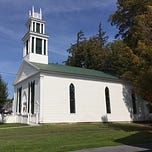Dear Friends,
Let’s jump right in to today’s podcast. And, please, do read the AFTERWORD at the end of it, which I did not record.
With Thanks for You this Lent Season! I trust it is a good one.
D. Paul
“The Church’s One Fondation Is Jesus Christ Her Lord!”
Bonhoeffer: Pastor. Spy. Assassin. Part II
This coming Saturday, April 5, 2025, it will be eighty years since Dietrich Bonhoeffer, on orders of Adolf Hitler, was hanged at the Flossenbürg Concentration Camp for “high treason” against the Third Reich. And for eighty years, Bonhoeffer’s multifaceted nature has eluded the self-serving characterizations of historians, seminarians, church leaders, playwrights, composers, and filmmakers.
Revered by both the progressive Left and the conservative Right within the Church—these ideological combatants grab a Bonhoeffer quote here and there, draw upon one or two of his appropriate attributes, and endlessly speculate on the details of his personal life. Hyperbole and distortion have shadowed Dietrich Bonhoeffer for the better part of a century, and I see no respite from the speculation but for the efforts of those who are deeply knowledgable of Bonhoeffer and eager to see a full and accurate portrait of his life maintained.
Eberhard Bethge was just such a man, as capably portrayed in the film by actor, William Robinson, though the scene of his lecturing Bonhoeffer on pacifism seemed strained. Then again, what isn’t strained or farfetched when it comes to the Bonhoeffer persona. Though denied by Bethge, who married Bonhoeffer’s niece, Renate, and had a son and two daughters with her, online LGBTQ platforms like Q Spirit have described Bonhoeffer and Bethge as not only the closest of friends (which they were), but lovers as well. And so the fantasy fabulists continue their contorted narratives, with one church leader wanting to persuade me how the age gap between Dietrich, at 36, and Maria, at 18, was proof that Bonhoeffer was gay—marrying into a innocent, young, “girl/boy-like” relationship that would leave him safe to operate behind the appearance of a heterosexual marriage. And so the beat goes on—everyone wants a piece of Dietrich Bonhoeffer!
I met Eberhard Bethge in 1992 (if memory serves) at a religious conference in Long Beach, CA, after sending my play to him in Germany. Bethge, who studied under Bonhoeffer at the “confessing seminary” in Finkenwalde, had written the definitive biography on Bonhoeffer, Dietrich Bonhoeffer: Man of Vision, Man of Courage—an unparalleled 800 page opus—and he was more than prepared to “talk shop” with me when we met for lunch, with several hand-written notes in the margins of my sixty-page play, Bonhoeffer 1945, gently suggesting a slight change here and there. But then came one place in the script where he was forceful about a necessary change. I had chosen the Luther hymn, “Ein Feste Burg ist Unser Gott" (A Mighty Fortress Is Our God), to be sung in a scene by Bonhoeffer and the young ordinands of the confessing Finkenwalde Seminary.
“No. We would never have sung that,” Bethge said.
“Why?” I asked.
“It is too militant.”
And herein is the lingering problem for our talented auteur—screenwriter, director, and producer of Bonhoeffer. Pastor. Spy. Assassin—Todd Komarnicki. It’s not just the promotional material of the movie that the Bonhoeffer family takes exception with, it is a portrayal that sees Bonhoeffer’s character encapsulated in the “conquering hero” tradition, when his real heroism may have been in his stance as a pacifist in a highly nationalized and militarized State, already making him a person of suspicion by the Gestapo. When Bonhoeffer finally does decide to join his family and friends in the resistance and help them put “a spoke in the wheels” of the Nazis, it’s not a triumphant decision, but a prayerful and costly one to his higher, ethical nature. And that costly decision, Bethge was specifically telling me that afternoon in Long Beach, was not reflected in their singing “A mighty fortress is our God, A mighty shield and weapon”—a militant song often used to inspire soldiers, and a hymn frequently described as the “Battle Hymn of the Reformation.”
For Bonhoeffer, it was already a season of repentance (“theological confession”), and the Confessing Church at Finkenwalde was more a Gethsemane than a school for gallantry, and, as their thoughtful mentor, Bonhoeffer, no doubt, led the young students in pondering his probing question, “Are we still of any use?” Though most had refused earlier to sign the Oath of Allegiance to the Führer, many of them, including Eberhard Bethge, were eventually conscripted and served in some capacity for the Vaterland. Others were imprisoned.
Well, perhaps I should have recused myself after all from the controversies surrounding this film. I fear I have failed you, dear readers and listeners, by not giving you the many reasons to watch the movie. But stay with me: my intention is still to praise the film where praise is due, not to bury it.
One scene alone in the movie is worth the price of admission. As Bonhoeffer and some fellow prisoners are about to face death, Dietrich organizes a spontaneous Eucharist, gathering them into a circle. The prisoners break the bread (the body of Christ) into their trembling hands, then pass the communion cup (the blood of Christ) one to the other, their parched lips eager for the “cup of salvation.” One of the Nazi soldiers, who has aided Bonhoeffer, is included in the circle, as no one is beyond the grace and forgiveness of Christ, underscoring the prophet of old—“Come, all you who are thirsty, come to the waters; and you who have no money, come, buy and eat…without cost! (Isaiah 55:1 NIV)—and foreshadowing Christ’s invitation to “eat and drink at my table in my kingdom” (Luke 22:30 NIV).
Other scenes and relationships that are worth noting: Bonhoeffer and his mother are in total sync, with Paula Bonhoeffer tenderly portrayed by Nadine Heidenreich; and though chronologically inaccurate, the scenes between Bonhoeffer and Martin Niemöller are pitch-perfect, with Niemöller played brilliantly by August Diehl; but then any actor who plays “Hamlet” and Edmund in “Long Day’s Journey Into Night” at the majestic Burgtheater (Castle theater) in Vienna has my deepest admiration; Clark Peters is great as the towering Rev. Adam Clayton Power Sr., gracefully asking Bonhoeffer at the dinner table in the parsonage of Harlem’s Abbyssinian Baptist Church (and I quote from memory): “Where did you meet Jesus?” Bonhoeffer responding, “What do you mean?” Bonhoeffer came to know well what the Rev. Powell meant by that question—do you have a first-hand, intimate relationship with Jesus?—and it is a question that Komarnicki seamlessly asks the audience to consider as well.
In spite of the film’s critics (things got very political when Eric Metaxas and Christian Nationalism were brought into the discussion; see *AFTERWORD below), Angel Studios, the various producers, Komarnicki and his fine cast and crew (beautifully filmed by cinematographer, John Mathieson), can stand tall, knowing they delivered a motion picture that will inspire thousands over the course of time, introducing them to a man of great faith, and perhaps, in the rarest stroke of all, to the very “faith” itself.
I do wish the critics (myself included) would have been more gracious, affirming the many fine qualities inherent in the production. Filmmakers are a lot like baseball players: they don’t get “a hit” every time up to the plate. Even the greatest have their duds. Often their films that “fall short of the mark” are the most interesting to watch, reflecting a director’s idiosyncrasies, obsessions, and, yes, his blind spots.
Well, Bonhoeffer: Pastor. Spy. Assassin is hardly a dud, but after a series of hits and critically-acclaimed movies, I would think it’s been a rough season for our esteemed filmmaker. But, then again, Todd Komarnicki is a resilient “rare bird,” I suspect, and in his previous films—producer of Elf with Will Ferrell, screenwriter of Sully with Tom Hanks, and screenwriter of the underrated Professor and the Madman with Mel Gibson and Sean Penn—he’s revealed a generosity of spirit and an unusual appetite for filming “whatever is true, noble, right, whatever is lovely and admirable” (Philippians 4:8 NIV; author’s paraphrase).
But more than anything else, perhaps, Mr. Komarnicki carries his faith in this crazy industry with a distinctive comfort and grace, and that alone makes this filmmaker a creative anomaly to be cherished.
Amen
* AFTERWORD: Komarnicki is right in defending his film against the accusations of it promoting Christian Nationalism and violence. Bonhoeffer was fighting against an evil regime that had lost its collective mind; nonetheless, though circumstances are different, his warnings against the State and a complicit Church are as valid today as they were then. Typically, both the progressive and conservative elements in the body politic and the Church are guilty of vilifying the other, and Komarnicki and his movie have been caught in their acrimonious crosshairs. What Bonhoeffer warns against can come from either the Right or the Left. So, discern, my brothers and sisters, pray for God’s wisdom, not man’s, to determine who is doing what to whom. I paraphrase Bonhoeffer ever so slightly, but here is a clear warning spoken by him in my play:
If they [the State] can demonstrate to a secure, contented, and happy world that it is really unhappy and desperate and in a state of existential despair about which it knows nothing, and from which only they can rescue it—then their hunt is over and the luscious meat of humanity is theirs to gnaw, devour, and lay their pernicious and incestuous eggs.
We misjudged the world; we did not realize that our submissiveness, self-sacrifice and obedience would be exploited for evil—evil disguised as truth—evil masquerading as light, charity, historical necessity, social justice—evil playing havoc with all our ethical concepts—evil bringing all the moral principles of Germany tottering and tumbling down.
Bonhoeffer’s words speak to our age more than we may imagine. And so we pray, watch, and act as called upon by the Spirit. And, no, that doesn’t mean establishing a theocracy, burning down government buildings, or destroyingTesla automobiles.
D. Paul













Share this post